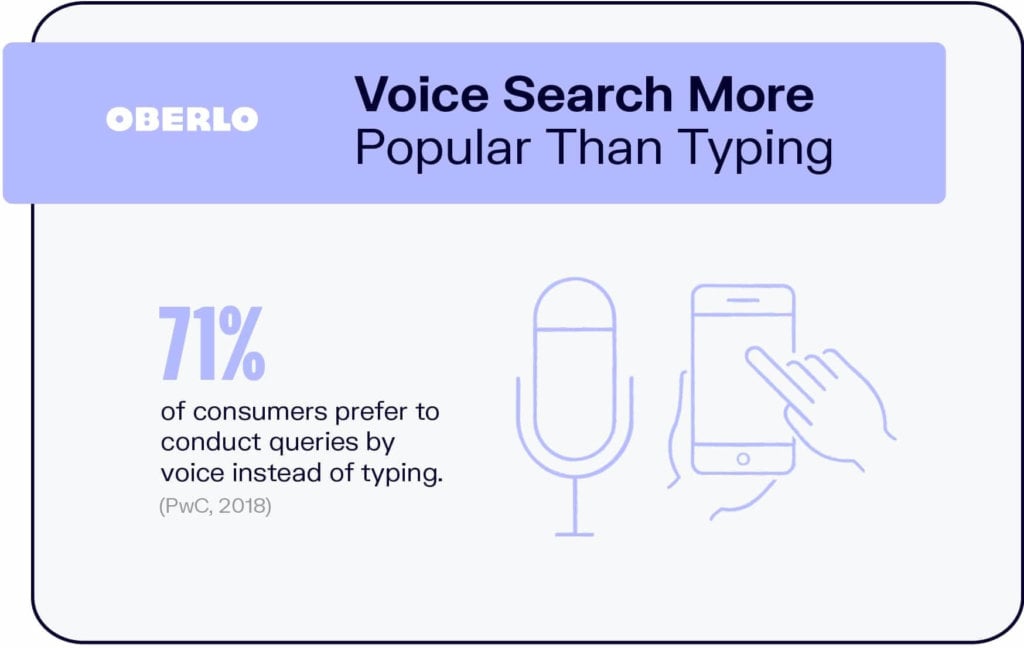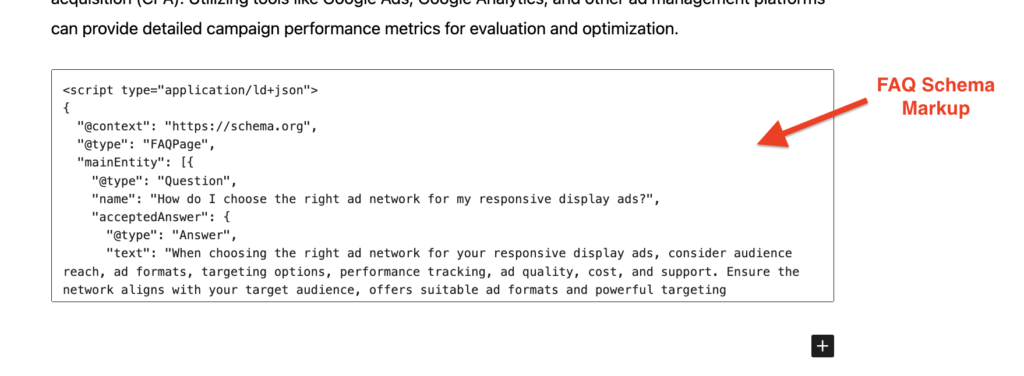5 Tips for Optimizing Your Website for Voice Search
With the rise of virtual assistants like Siri, Alexa, and Google Assistant, users increasingly turn to the convenience of voice searches to navigate the internet.
According to a report by Market, the global voice search market was valued at $20.3 billion in 2022. It is expected to reach a market size of $112.5 billion by 2032. This data highlights the substantial growth and potential of the voice search industry on a global scale.
In other words, optimizing your website for voice search is crucial to staying relevant in the competitive market. If your website doesn’t appear in voice search results, you’ll miss out on potential users.
Follow these 5 essential tips to optimize your website for voice search.
1. Use Conversational Tone in Blog Posts
To effectively implement voice optimization on your website, understand the language and nuances of how people speak when using voice commands. Gone are the days of robotic keyword stuffing. You need to focus on crafting conversational and engaging blog content that mimics real-life conversations.
Unlike traditional text-based searches, voice search is 35x more conversational and question-based. Moreover, 70% of users speak a natural and conversational language when interacting with digital assistants.
For instance, instead of typing «grow online manufacturing business,» a user might ask, «How do you grow a manufacturing business online?” This shift calls for a change in your SEO strategy to include more natural, conversational phrases.

Source: Oberlo
Hence, you need to research industry-related keywords and tailor your blog posts to align with these natural language patterns.
Long-tail keywords are essential. These specific, often three or more word phrases, aren’t just typically used by people when conducting voice searches. They also have less competition than short-tail keywords. Thankfully, keyword research tools like Google’s Keyword Planner and SEMRush can help you search for relevant long-tail keywords to optimize your blog content. These tools give you insights into search volume, competition, and relevance, too.
Consider, too, what other questions–aside from the obvious ones—voice search users might ask related to your blog articles. You can find those other questions in the People Also Ask section when you make a search query:
Once you’ve identified your keywords, strategically incorporate them into your blog posts. Here are a few best practices:
- Incorporate them into your titles and headings to increase their visibility on search engines.
- Include them in meta descriptions and tags–these are key areas that search engines scan.
Remember, the goal is not to stuff your blog content with keywords but to naturally integrate them. You want to enhance your content’s relevance and accessibility. By identifying relevant keywords and incorporating them effectively into your blog posts, you can significantly enhance your website’s visibility and rank higher in voice search results.
2. Implement Structured Data Markup
Structured data markup, or schema markup, is a type of code that aids search engines in understanding your website’s content. This form of microdata provides explicit clues about the meaning of a page, enabling search engines to interpret the information accurately. You can easily generate it using this free tool and add it to your blog posts.
This markup is crucial for voice search SEO, as voice-enabled platforms like Google Home, Siri, Alexa, and Microsoft Cortana rely on this data to respond to users’ voice commands accurately. To maximize the benefits of structured data markup for voice search, it’s important to focus on certain elements. Below are some key points to consider:
- Use the appropriate schema type for your content. For instance, ‘Recipe’ for a cooking blog post, ‘Product’ for e-commerce items, ‘Event’ for upcoming events, and so on.
- Ensure that the markup is error-free. You can use Google’s Structured Data Testing Tool to validate your schema markup.
- Keep your markup up-to-date. Regularly update your structured data as your content changes.
While structured data markup is a powerful tool, it’s not a guaranteed ticket to the top of voice search SEO results. Bear in mind that not all types of content will require structured data. It’s essential to recognize where markups can add value to your website and focus your efforts accordingly. Inappropriate use can lead to negative SEO attacks.

3. Prioritize Mobile Optimization
Mobile optimization isn’t just about resizing content for smaller screens; it’s about creating an engaging, user-friendly experience that caters to the preferences and needs of mobile users. There are over five billion mobile users globally, and 20% of all Google searches on mobile devices are voice searches.
Moreover, Google predominantly uses mobile-first indexing as the standard for ranking a website’s content. That said, use the tips below to ensure your website is optimized for mobile searches:
- Use a “fat-finger design”: Make sure all buttons, links, and calls to action are sizeable and spaced adequately to prevent erroneous clicks.
- Make your menu simple. Don’t include too many visual elements that can appear cluttered when seen on a smaller screen. You also want a responsive design for your website.
- Compress your media files, optimize images, and leverage browser caching. These will help improve your site’s loading speed on mobile phones and other devices. You can use tools like Google’s PageSpeed Insights to check your website’s speed and implement recommended optimizations.
- Make your content readable. Use headings and subheadings to make content more digestible.
Overall, mobile optimization is a continuous process that requires consistent attention and effort. By prioritizing this, you can enhance your website’s visibility, user experience, and overall success in voice search SEO results.
4. Create FAQ Pages
As of 2022, voice commerce sales were projected to reach $40 billion, with 71% of consumers depending on voice search for quick answers. Therefore, optimizing your website content with FAQs can lead to more visibility on search engine result pages.
You can identify your target audience’s most common questions then build your FAQ pages around them. As mentioned earlier, you can use the Google’s «People Also Ask» feature to determine what these questions are. Answer The Public or social listening tools can help, too.
Note also that voice search algorithms prioritize direct answers. Craft concise answers and keep them within 29-43 words.

You have to ensure, too, that your FAQ pages are regularly updated with fresh, relevant content. This will help maintain your site’s relevance and improve its chances of being selected for voice search results. You can use generative AI tools like Writer to create highly optimized FAQs content for your website.
Note, Google said it plans to show FAQ and FAQ rich results regularly for only “well-known, authoritative government and health websites.” That doesn’t mean, however, that it will no longer show these results for sites that don’t fit in this category. In fact, Google only said that for these other sites, these results will be shown based on Google’s algorithm, although not regularly.
In other words, adding FAQ may still increase your chances of appearing in Google voice searches.
5. Optimize for Specific Voice Search Devices
There are key strategies to follow to optimize your website for voice search platforms in general. As we’ve seen, you should use a conversational tone in your website and implement structured data, among other things.
But you have to consider, too, that not all voice-enabled devices use the same search engine when retrieving and providing information to users. That means each device will still have specific requirements for ranking on voice search depending on the particular search engine it uses.
Check out these voice search devices and the corresponding search engines they utilize:
- Google Home/Google Assistant – Google
- Amazon Echo/Alexa/Microsoft Cortana – Bing
- Siri – Google
So, let’s say you want to rank on Bing. Apart from following the general guidelines for ranking on voice search, you’ll also want to ensure your content has what Bing says are the three characteristics of quality content: Authority, Utility, and Presentation. So, you’ll need to clearly mention the author of your website content, address a specific query in detail, and present your text well. There should be a clear distinction between your ad and your content.
For Google, you’ll need to aim for its featured snippets. Voice search SEO results are 33% more likely to show up in these featured snippets.
Enable voice search capabilities for voice assistant users on your website, too. So, depending on the device to be used for voice search, create Alexa Skills, Siri Shortcuts, actions for Google Assistant, etc.. This will improve your site’s performance and increase its chances of appearing in voice search results for those devices.
In other words, when optimizing your website for voice search, determine the device to be used for it first. Then adjust your website taking into account that search engine’s specific requirements for ranking.
In Closing
With voice search changing how users seek information, optimizing your website for this emerging trend is no longer a choice but a necessity.
The key to effective voice search optimization lies in understanding your audience’s search behavior and creating high-quality, conversational content that aligns with the user intent. Don’t forget to implement schema markups to help search engines understand and interpret your web pages better.
Also, create SEO-optimized FAQs and Q&A content while prioritizing mobile optimization across your web content and pages. Also, optimize for specific voice search devices, too.
Implement these tips and you’ll soon see your website ranking in voice search results. Good luck!

